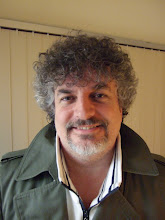In 1957, the patient, Mr Wright, had advanced lymphosarcoma, with neck tumors the size or oranges and an enlarged spleen and liver. Treatments were ineffective, yet he had hope despite his condition. A new drug was being tested and he begged to be included in the study. Even though he didn't qualify because he was considered very near death, the doctors, at his insistence, gave him the drug anyway, expecting him to be dead in a few days. But he perked up considerably, the tumors were half their original size - a more rapid regression than could have been achieved with heavy X-ray doeses. Within ten days, he was discharged from his "deathbed."
About two months later, news reports carried conflicting stories about the usefulness of the drug, and Mr. Wright, very logical and scientific in his thinking, experienced a relapse. However, his doctor, seeking to explore what was really going on, explained that the early shipments of the drug had deteriorated rapidly in their bottling, but a newer, more potent strain was available, and gave his patient injections of this more recent preparation.
But it was really only fresh water.
Yet, the results were astounding, even more dramatic than his first near-terminal state. Again the tumors decreased in size and he appeared to be the picture of health. Continuing to receive the water injections, he remained symptom-free for more than two months.
Then the American Medical Association announced that the drug was indeed worthless and ineffective in the treatment of cancer. A few days later, Mr. Wright was readmitted to the hospital, his faith and hope shattered, and in less than two days he was dead.
This is very compelling proof that there is much more to our mental attitudes of whether we "believe" a remedy is going to work or not. "It's all in your head" might not be such a bad thing.
I've often thought that, in clinical studies, the miracle is not that a particular drug achieved, for example, a 22% decrease in symptoms, but that the groups receiving the placebo medicines achieved similar results in 18% of the cases. That's the real miracle! They got better and we didn't do anything! And yet, we herald the drug for exceeding the "placebo response." How locked into a "physical-only" model of medicine we are.

No comments:
Post a Comment